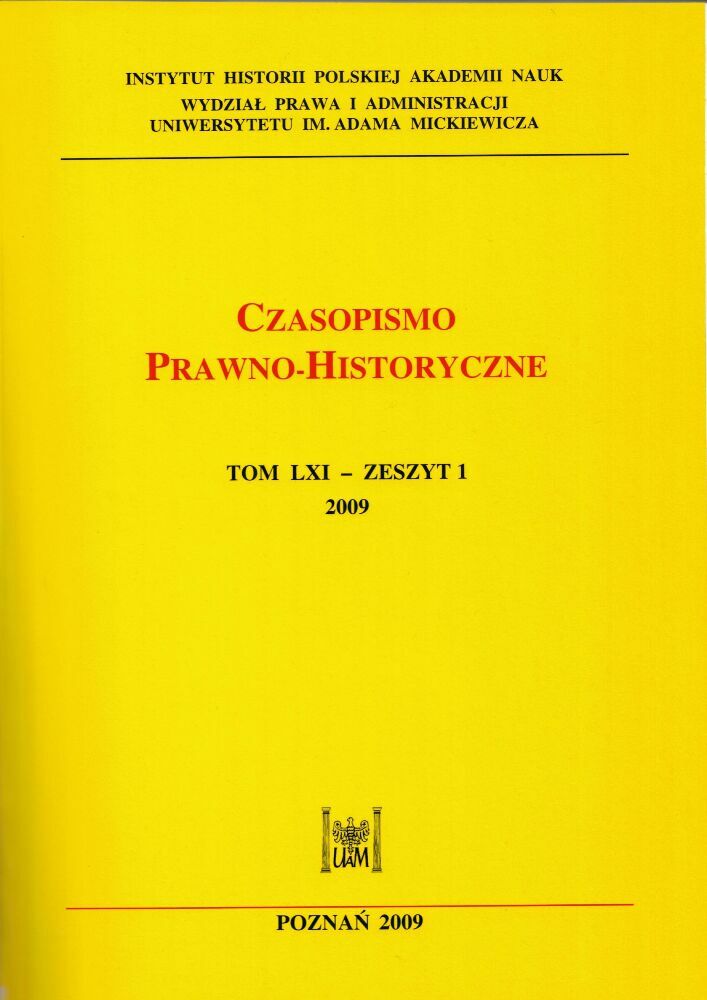Abstract
The paper focuses on the history of the composition of the Seym in Old Poland and the evolution of its legal character from a messenger sent with a mission, through a seat with an imperative mandate, to the status of a plenipotentiary, or a Nation's representative with a free mandate. Parliamentary representation developed when the consent of the nobles was necessary for new taxes to be imposed, or certain privileges to be waived or reduced. The practice of sending representatives elected at nuntii terrestres was a result of a growing importance of land diets which started to enjoy more powers during the reign of Casimir, the Jagiellonian (1444-1492). The oldest information of the presence of a land diet representative at a parliamentary session of the Seym comes from 1459. Representatives of the nobles were also present at the Seym session in 1461, 1468 and 1478. The scope of authorities given to those representatives varied and depended on the type on mandate granted to them (plena potestas, lomitata potestas). Representatives of land nobles to the Seym were not only given guidelines how to react to various motions proposed by the Crown (regarding taxes, State defence, etc.) but were also handed lists of postulates, claims, grievances and statements to present on behalf of the land nobles they represented. Research into those 16th century guidelines and their equivalents in later centuries shows that the former were not strictly of absolutely obligatory nature. The imperative mandate functioning in Poland was positively assessed by Jean Jacques Rousseau in his Considerations sur le gouvernement de la Pologne. Rev. Hugo Kołłątaj, the most eminent representative of Polish Enlightenment, shared that view. Eventually, pragmatism prevailed and the founders of 3rd May Constitution decided to leave aside the imperative man date and replace it with the free one.
Funding
Digitalisation and OA co-funded by the Minister of Education and Science (Poland) under contract no. BIBL/SP/0002/2023/1
License
Copyright © by Faculty of Law and Administration, Adam Mickiewicz University, Poznań, 2009OPEN ACCESS




